Customers who leased a 2020 Chevy Bolt EV may want to recheck their options before returning their vehicle at the end of the lease, as a new report indicates that the 2020 Chevy Bolt EV currently offers one of the highest trade-in value dollar differences over the vehicle’s residual value.
According to a recent report from CNBC, which cites data from Edmunds, the average trade-in value for cars leased in 2020 is 19 percent higher than the predetermined residual value, or about $3,965. It’s estimated that 3.3 million vehicles were leased in 2020.
According to the data, the Chevy Bolt EV has one of the highest dollar differences between its current trade-in value and its original residual value estimate. One average, leased 2020 Chevy Bolt EV models are currently valued at $29,551, a whopping $8,415 over the original estimated residual value of $21,136, or about 40 percent.
On the list of the top 10 leased 2020-model-year vehicles with the greatest dollar difference between the current trade-in value and the original estimated residual value, the Chevy Bolt EV slots in at fifth place. At the top of the list, we find the Mercedes-Benz GLS-Class, which has a current trade-in value of $62,257, amounting to an $11,315 difference from its original estimated residual value of $50,942.
Notably, positive equity on leased vehicles has fallen from an average of $7,208 a year ago for 2019 leases. Nevertheless, the persisting positive equity of $3,965 for leased 2020-model-year vehicles indicates that lessees should explore their options prior to handing the vehicle in at the end of the lease. One option would be buying the vehicle at the end of the lease, as it would be less expensive than buying the same vehicle off a dealer lot. Customers can also potentially buy out the lease and sell the vehicle on the open market for a profit.
Subscribe to GM Authority for more Chevy Bolt EV news, Chevy news, GM electric vehicle news, GM business news, and around-the-clock GM news coverage.

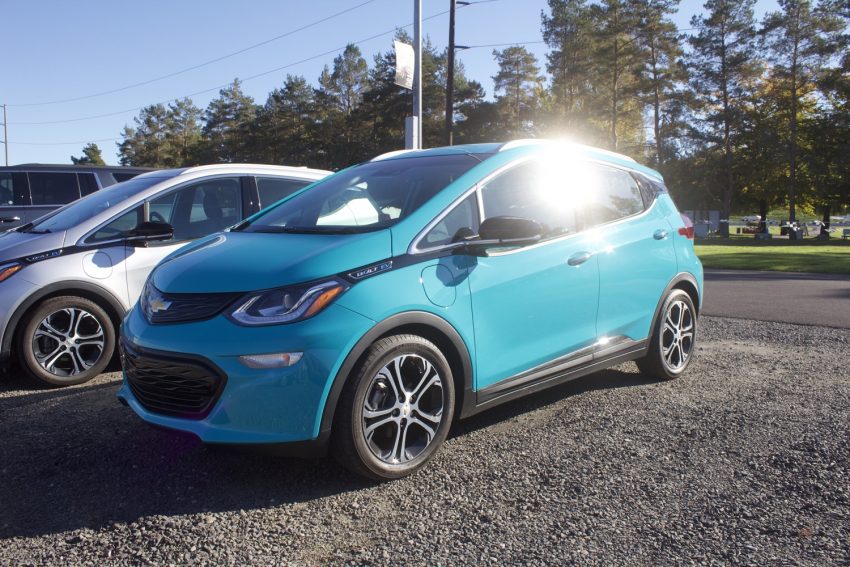
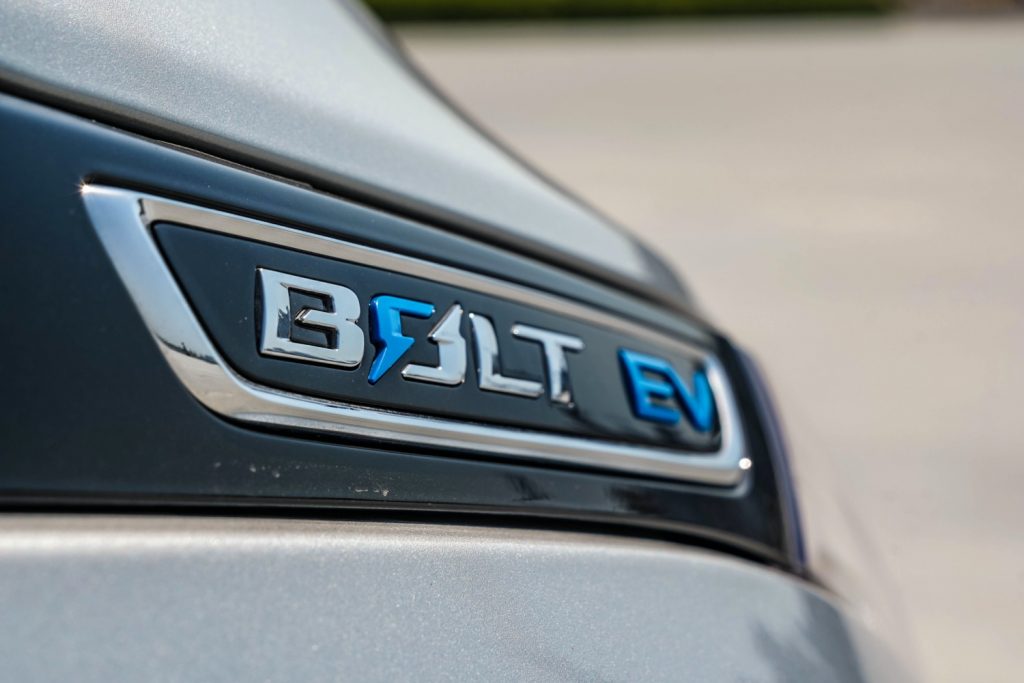
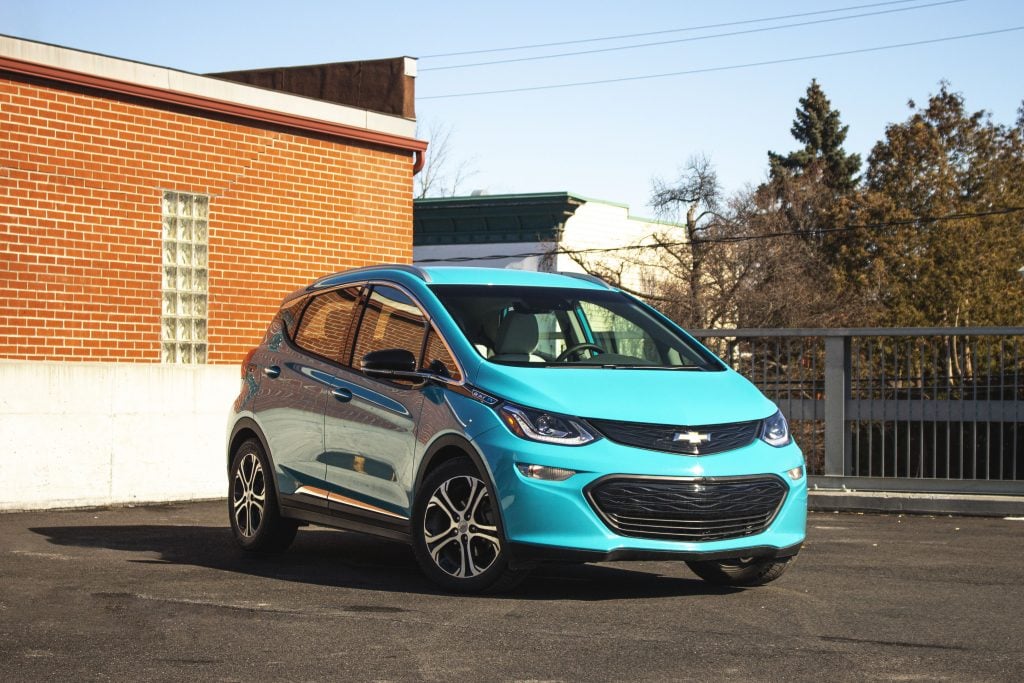


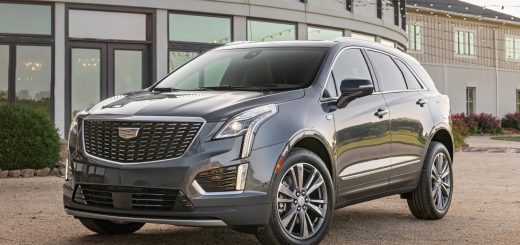
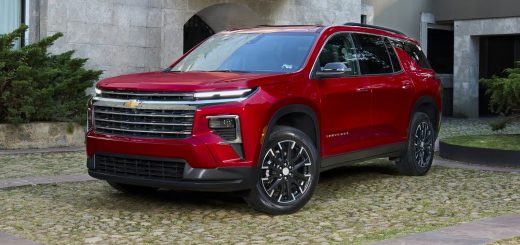
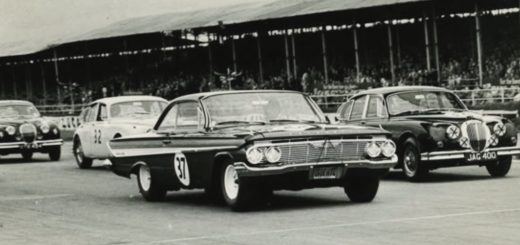
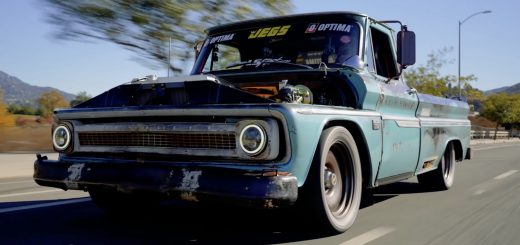
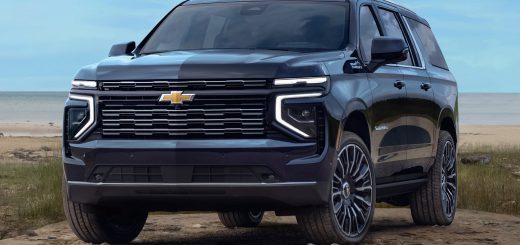






Comments
Great news for Bolt lessors. However, those trade in values seem a bit high. They’re higher than the MSRP on a new 2023 Bolt. While there might be some dealer markups, I’d be surprised if values on Used Bolts are higher than the new models.
Good to see the Bolt becoming so popular.
I have to say I see about one of these every time I go out.
I’m not seeing that at all when looking at KBB.com or on used car sites. Seems like pie in the sky.
I have a 2019 Bolt. I have had the battery replaced. GM gives you an 8-year, 100,000 mile warrantee on the battery from the date of installation of the battery. Not sure if the warranty is transferable, but the range values of the new battery are significantly higher than the original battery. On a fully charged battery my expected range is about 300 mile, and max range is around 340 miles. The new ranges are competitive with newer EV vehicles.
Yes the warrantee is transferable
Have you had any other repairs on your Bolt?
Considering buying a used one but Consumer Reports gives Bolt a very low reliability rating.
The 2023 model Bolt seems to have more issues than the older ones. De-contenting to get the sticker price down, perhaps? The Consumer Reports owner self-reported problems centered on the electric drive system. That seems weird. The motor is extremely simple. Perhaps they botched a refresh of the inverter electronics. Of course any problems in a 2023 unit should be covered under warranty at this point in time, but having to deal with a broken car is still a nuisance.
I have a 2017 Bolt, and it has been an exceptionally reliable vehicle and I have never had any problems with the battery or drive system, but GM replaced the battery cost-free anyway in March 2021. That gives me a battery warranty good until 2029 if I keep the car (so far, I believe I will). The only other vehicle I’ve owned which has come close in reliability was a 1989 Mazda MX-6 which was based on the Ford Probe platform.
I previously owned a Nissan LEAF EV which I bought used as a lease return from a Nissan dealer. I had all sorts of things break which shouldn’t have been problems on a three year old car. The LEAF battery also degraded precipitously. I was quite happy to sell off the LEAF.
I have not had any issues. I bought the car for my wife because she does only local driving; the car only has 3300 miles on it. I am driving her 21 year old Honda that just broke 98k. I put a 100 amp charger in my garage. MD gave me $700 for it and it fits my green house. Yes, I agree that GM needs to fix the charging rate.
Joe, did you receive any paperwork from Chevrolet actually stating that you had a new battery warranty as of the date of replacement?
Yes, I did. It is called battery certification and has my vehicle’s vin .
What a great little car. We bought a 2023 in December and love it. It regularly beats the advertised KWH/mile rating advertised by GM. The build quality and finish is pretty awesome for a 30k car. Ours has everything you can get on it. It’s even cheaper now that it qualifies for some of the subsidy. Looking for an around town car that can make a road trip if needed, this is it. The only downside to the Bolt is the 54kw charging speed limitation. GM, if you’re listening you need to fix this via software because we know from using regenerative braking at speed on a steep downhill that the car will take at least 74kw of incoming juice. Maybe there is some issue with sustained battery input at higher rates, I don’t know but if not please fix this. It’s the only thing making this car not as road trip friendly as it could be because charging times are extended DC fast charging stations. Come on GM!
I believe the charge rate is limited by the cooling system to reject heat from the battery more than a limitation of the software. Keep in mind that regenerative braking is usually a relatively short term intermittent energy input as opposed to charging which is obviously continuous.
The Bolt charge rate really tapers off a lot near full charge – probably to discourage plating out of metallic lithium in the battery cells. Similarly, you don’t get full regenerative braking until the battery is less than about 95% full. On my 2017, there is a white line across the regeneration part of the graph to indicate the limiting effect, and line is moved until it disappears as the battery charge is used.
(edited to correct spelling)
You probably right. LI batteries need to have their environment controlled or else they will go unstable and react violently. I discovered that when I worked for a government r&d organization. I was part of a classified project.
Worth more to who?